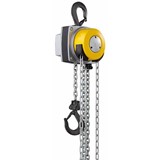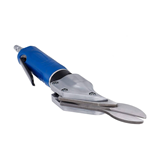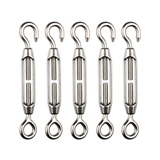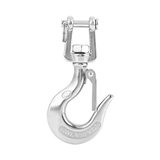ATA has released a booklet s a ‘wake up’ call to the people and parties in the supply chain who rely on the trucking industry to transport their products.
The days of ‘all care, no responsibility’ for safety in the trucking industry have ended with the introduction of tough new laws which will allow anyone in the transport chain to be held liable where they have control and their actions result in an offence.
The new laws are designed to ensure that those who are responsible for conduct which affects compliance are accountable for failure to discharge that responsibility (chain of responsibility).
Parties who should have been aware or should have taken precautions to prevent a breach will be held legally liable even though they may not have been physically involved in or aware of the breach (duty of care).
That is, they will be legally liable for their contribution to unsafe on road behaviour.
The new laws will be specifically aimed at combating overloading, badly restrained loads, vehicle dimensions which are exceeded, speeding, excessive driving hours and poor fatigue management.
Can your organisation actively demonstrate due diligence in this area? Would you comply under ‘chain of responsibility’ legislation?
Special obligations of consignors
A consignor must not engage someone to transport goods by road if the consignor knows, or reasonably ought to know, that by complying with an express or implied condition of the engagement, the driver of a heavy truck or commercial bus transporting the goods would, or would likely to commit:
- a) a core driving hours offence; or
- b) a driving record offence; or
- c ) a speeding offence
Penalty: $1,500
Special obligations – rostering and scheduling
- 1) An employer, or responsible employee of an employer, must not roster driving, work or rest time of an employed driver if the employer or responsible person knows, or reasonably ought to know, that by complying with the roster, the driver would, or would likely to, commit a core driving hours offence.
Penalty: $1,500
- 2) An employer, or responsible employee of an employer, must not schedule the transport of people or goods by road if the employer or responsible person knows, or responsibly ought to know, that by complying with the schedule, the driver would, or would be likely to, commit;
- a) a core driving hours offence; or
- b) a speeding offence
Penalty: $1,500
Chain of responsibility – the law
As knowledge increases about the causes of truck related road safety issues and their contribution to accidents, the courts are taking a broader view of responsibility and liability.
Although legal approaches are still evolving, there is a move away from the sole focus on the individual operator to a more inclusive approach that considers the legal responsibility of other players such as managers, executives, company owners, contractors and consignors.
A recent court case highlights this trend. A driver from a trucking company was involved in an accident in which fatigue was a contributing factor. The presiding judge concluded that, although the company was aware of log book breaches by its drivers, and excessive hours of work were possible, it failed to establish a system which would have allowed it to properly collate and audit driving records to ensure drivers were not driving excessive hours.
The principle behind the ‘Chain of Responsibility’ is that any party which has control in a transport operation can be held responsible and may be made legally liable.
It is closely related to the principle of ‘duty of care’, found in occupational health and safety legislation.
Why the need?
Up until recently road transport law has generally held drivers and in some cases, owners and operators responsible for safety on the road. Other parties in the transport chain who might influence the mass or dimension of a load, the manner of restraining that load, or driver fatigue, have rarely been held responsible.
The reason is that it has been difficult to apply chain ofresponsibility under current laws. Enforcement agencies have had to rely on offences such as ‘complicity’ or ‘aiding or abetting’. Gathering the evidence needed for successful prosecutions has been difficult. Consequently prosecutions have been rare.
Also, despite concerted efforts by the ATA, its member organisations and the industry to improve safety, it has become abundantly clear that other parties in the supply chain have a significant influence on safety, and that further improvements are unlikely to be made until the ‘other parties’ accept more responsibility.
Victoria may establish stand-alone Chain of Responsibility legislation to allow the prosecution of related offences, to overcome the difficulty of prosecuting under road transport regulations.
Wider recognition and strict enforcement of the chain of responsibility is potentially the single most influential factor in seeking to improve safety in the trucking industry.
The new transport laws apply in addition to, but complement, other duties required by occupational health and safety, environment, corporations and other laws.
Who is part of the chain?
Who could be held liable under the new legislation? The parties who will be included in the Chain of Responsibility are those who perform the following activities:
- Consigning – for whom or on whose behalf goods are being transported by road. The term covers freight forwarders, loading agents, manufacturers, and importers.
- Packing – in cases of pre-packaged loads and container freight, placing items in packages or containers or pallets.
- Loading – placing or restraining the load on a vehicle.
- Carrying – controlling the use of the vehicle for the transport of the load by road.
- Driving – the physical act of driving the loaded vehicle.
- Receiving – paying for the goods/taking possession of the load.
A director, secretary or senior manager of a body corporate are included in the chain of responsibility.
This information brochure is can be downloaded in full.
Browse the IndustrySearch directory: Truck Parts & Transport Equipment.











